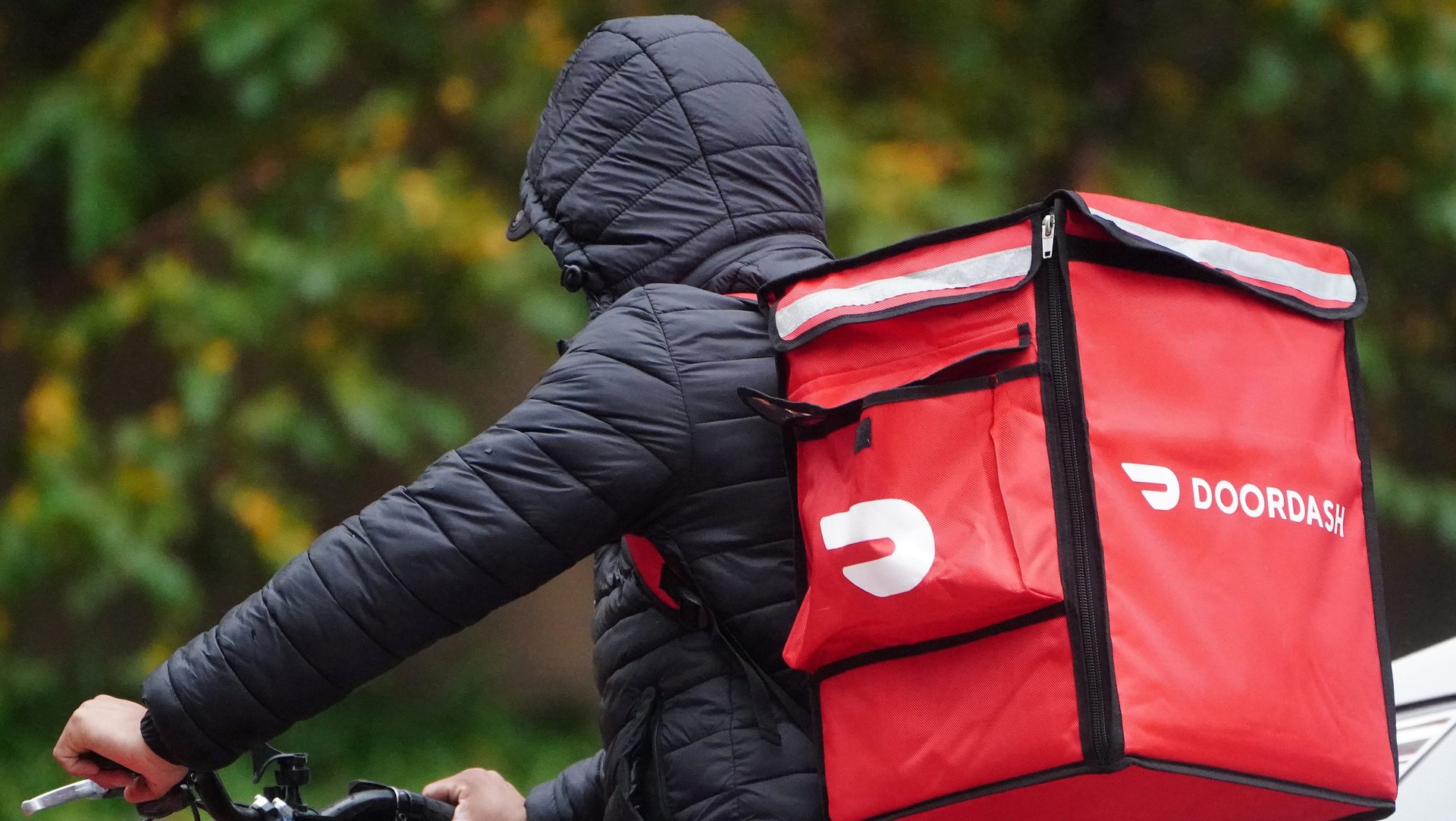DoorDash proved to be the ultimate IPO for the pandemic era
DoorDash soared in its debut on the New York Stock Exchange, opening at $182—and handily summarizing a year’s worth of business and finance trends in one well-subscribed IPO.


DoorDash soared in its debut on the New York Stock Exchange, opening at $182—and handily summarizing a year’s worth of business and finance trends in one well-subscribed IPO.
The stock opened nearly 80% above the initial offering price of $102, which valued the food delivery company at $41 billion. According to Pitchbook, that makes it the third-highest valuation of any VC-backed company, after Uber and Facebook, to list on the US exchanges in the past decade.
DoorDash’s IPO reflects not just the historic amount of froth in the IPO market this year, but also the growth of an industry that barely existed a decade ago, a staffing model that is forcing society to rethink how it defines an “employee,” and the love-hate relationship that has developed this year between delivery companies and the hard-hit restaurants for which they are now a lifeline in the pandemic.
Founded in 2013, San Francisco-based DoorDash is now leading the US restaurant delivery industry, with 50% of the share. What helped propel DoorDash ahead of its competitors was investing early into suburban markets, where the average order size tends to be larger. According to DA Davidson analyst Tom White, DoorDash’s share in suburban markets is estimated at 58%, up from 23% in January 2018. Online food orders also are growing faster in smaller cities and suburban markets than in large metro areas, based on DA Davidson’s data.
While DoorDash is riding out the pandemic delivery boom, many restaurants are struggling with delivery commission fees. Lizeth Morales, who owns four El Gordo Peruvian restaurants in New Jersey, sees the DoorDashes, Grubhubs, and Uber Eats of the world as a “necessary evil,” as the platforms offers access to far more customers than she can afford to reach on her own. Even large chains like McDonald’s have raised concerns over commission fees.
A handful of cities across the US, from Seattle to Jersey City, have capped commissions during the crisis to help local restaurants, but it’s not clear how long the caps will last.
While DoorDash’s IPO registration filing spends some time talking about the importance of small businesses, what the company really depends on is national chains. DoorDash works with more than 175 of the 200 largest US restaurant brands, including Chick-Fil-A, Chipotle, McDonald’s, and Wendy’s. The “risk factors” section of the S-1 filing notes:
In particular, our national brand partnerships are a key component of our strategy to provide a wide selection for consumers. If we fail to retain either our existing merchants, especially our most popular merchants and our national brand partners, or consumers, the value of our network would be diminished.
Like the other big food delivery companies, DoorDash has been unprofitable every year since its founding. It lost $149 million in the first nine months of 2020. But revenue jumped to $1.9 billion, which was more than double the company’s revenue for all of 2019, and in the second quarter of this year the company produced a $23 million profit.
DoorDash is looking to expand beyond food delivery and to deliver items from convenience stores, grocers, and pharmacies, which will help bring the company closer to profitability. The company also aims to grow internationally—where there’s a lot of room for growth for food delivery. In October, Uber CEO Dara Khosrowshahi said that just 10% of Japan’s restaurants are on the Uber Eats platform.
In the US, meanwhile, the quick, massive growth of these platforms is already getting regulatory attention. In July, Just Eat Takeaway agreed to acquire Grubhub for $7.3 billion, after discussions with Uber to buy Grubhub reportedly fell through over antitrust concerns.
In midafternoon trading on their debut day, DoorDash shares were about 3% below their opening price at $174.71—still 71% higher than where the IPO priced. But DoorDash’s status as venture capital’s biggest exit of the year is already under threat: Airbnb is seeking to raise close to $3.1 billion in an IPO expected to price today, at a range that would value the company at as much as $41.8 billion.